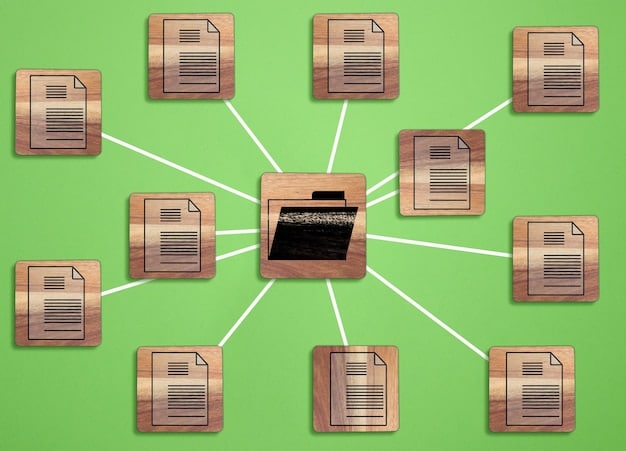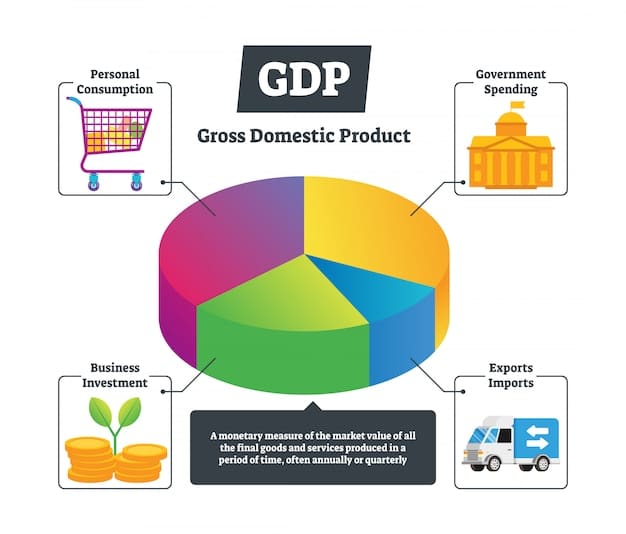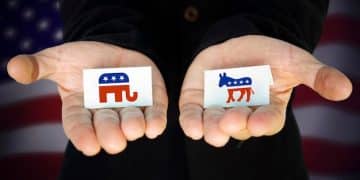PACs and Campaign Finance: Do They Corrupt Elections?

Political Action Committees (PACs) play a controversial role in campaign finance, raising concerns about their influence on elections and whether they undermine the integrity of the democratic process through significant financial contributions.
The role of Political Action Committees (PACs) in campaign finance is a hotly debated topic, with many questioning whether their influence is undermining the integrity of elections. These organizations, designed to raise and spend money to elect and defeat candidates, have become a significant force in American politics, prompting concerns about the potential for corruption and the fairness of the electoral process.
Understanding Political Action Committees (PACs)
Political Action Committees, or PACs, are organizations established to raise and spend money to elect and defeat candidates. They represent a variety of interests, from corporations and labor unions to ideological groups. Understanding their structure and function is crucial to grasping their impact on elections.
The Basics of PACs
PACs operate by collecting contributions from members and donors, then using these funds to support or oppose candidates. They must register with the Federal Election Commission (FEC) and adhere to certain regulations regarding contributions and expenditures.
Different Types of PACs
There are several types of PACs, including connected PACs (affiliated with corporations or unions) and non-connected PACs (independent groups). Super PACs, a more recent development, can raise and spend unlimited amounts of money but are not allowed to directly coordinate with candidates or parties.
- Connected PACs: Affiliated with corporations, labor unions, or trade associations.
- Non-Connected PACs: Independent groups focusing on specific issues or ideologies.
- Super PACs: Can raise and spend unlimited money, but cannot coordinate with campaigns.
PACs play a significant role in campaign financing by funneling money into political campaigns and exerting influence in elections. Though they are regulated by the FEC, the continuous evolution of campaign finance laws and the emergence of Super PACs have led to ongoing debates about their impact.

The Evolution of Campaign Finance Regulations
Campaign finance regulations have evolved significantly over time, shaping the role and influence of PACs. From early attempts at regulation to landmark Supreme Court decisions, understanding this history provides context for current debates.
Early Regulations and Reforms
Early campaign finance laws aimed to limit the influence of wealthy individuals and corporations. The Tillman Act of 1907 prohibited corporations and national banks from contributing directly to federal campaigns, marking an initial step in regulating campaign finance.
Landmark Supreme Court Cases
Several Supreme Court cases have had a profound impact on campaign finance regulations. Buckley v. Valeo (1976) established that spending money on political campaigns is a form of free speech protected by the First Amendment, leading to the removal of certain expenditure limits.
The Rise of Soft Money
The term ‘soft money’ refers to unregulated contributions to political parties for party-building activities. This type of funding grew in prominence in the 1980s and 1990s, often bypassing federal regulations. The Bipartisan Campaign Reform Act (BCRA) of 2002, also known as McCain-Feingold, aimed to curb the use of soft money in federal elections by prohibiting national parties from raising or spending it.
The continuous evolution of campaign finance regulations reflects ongoing efforts to balance free speech rights with the need to maintain fair and transparent elections. Supreme Court decisions and legislative actions have shaped the landscape, influencing the role and impact of PACs.
PACs and Their Influence on Elections
PACs exert considerable influence on elections through various means, including direct contributions, independent expenditures, and issue advocacy. Examining these avenues reveals how PACs can shape electoral outcomes.
Direct Contributions to Candidates
PACs can make direct contributions to candidates, subject to certain limits set by the FEC. These contributions can help candidates fund their campaigns, hire staff, and purchase advertising time.
Independent Expenditures
Independent expenditures involve spending money to support or oppose a candidate without directly coordinating with their campaign. PACs and Super PACs often engage in independent expenditures, producing ads and conducting outreach efforts.
Issue Advocacy and Political Persuasion
PACs also engage in issue advocacy, running ads and campaigns that highlight specific issues or criticize candidates’ positions. These efforts can influence public opinion and sway voters.
The multifaceted influence of PACs on elections raises questions about fairness and accessibility, especially for candidates who may lack access to substantial PAC funding. Understanding these dynamics is crucial for evaluating the role of money in politics.

Concerns About the Integrity of Elections
The significant role of PACs in campaign finance raises numerous concerns about the integrity of elections. Issues such as undue influence, corruption, and unequal access to resources are frequently cited by critics.
Potential for Undue Influence
One of the primary concerns is that PAC contributions can lead to undue influence over elected officials. Critics argue that large donors may gain preferential treatment or sway policy decisions in their favor.
Corruption and Quid Pro Quo Exchanges
While direct quid pro quo exchanges (explicitly trading contributions for favors) are illegal, the potential for corruption remains a concern. Critics suggest that the expectation of future contributions can subtly influence lawmakers’ decisions.
Unequal Access to Resources
The ability to raise and spend large sums of money through PACs and Super PACs can create an uneven playing field in elections. Candidates without such access may struggle to compete, limiting voter choice.
- Do PAC contributions lead to undue influence on elected officials?
- Does the expectation of future contributions affect lawmakers’ decisions?
- Does PAC funding create an uneven playing field in elections?
Addressing these concerns requires ongoing debate and potential reforms to campaign finance laws. Balancing free speech rights with the need for fair and transparent elections remains a significant challenge.
Arguments in Defense of PACs
Despite the concerns, there are arguments in defense of PACs. Advocates suggest that they represent a form of free speech, allow diverse voices to be heard, and provide valuable information to voters.
PACs as a Form of Free Speech
Supporters of PACs argue that campaign finance regulations infringe on free speech rights protected by the First Amendment. They believe that individuals and organizations should be allowed to spend money to express their views and support candidates.
Allowing Diverse Voices to Be Heard
PACs represent a variety of interests, from corporations and labor unions to ideological groups. Advocates argue that they provide a platform for diverse voices to be heard in the political process.
Providing Valuable Information to Voters
PACs often engage in issue advocacy and produce ads that highlight candidates’ positions on important issues. Supporters argue that this information can help voters make informed decisions.
The debate over PACs reflects fundamental disagreements about the role of money in politics and the balance between free speech rights and the need for fair elections. Considering these arguments is essential for a comprehensive understanding of the issue.
Potential Reforms and Future Directions
Addressing the concerns about PACs and campaign finance may require reforms and changes to current regulations. Several proposals have been suggested, ranging from stricter limits on contributions to public financing of elections.
Stricter Limits on Contributions
One potential reform is to impose stricter limits on contributions to PACs and candidates. This could reduce the potential for undue influence and level the playing field for candidates.
Increased Disclosure Requirements
Another proposal is to increase disclosure requirements for PACs and Super PACs. This would allow the public to see who is donating to these organizations and how they are spending their money.
Public Financing of Elections
Some advocates propose public financing of elections as a way to reduce the influence of private money. Under this system, candidates would receive public funds to run their campaigns, reducing their reliance on PACs and wealthy donors.
The future of campaign finance will likely involve ongoing debates and efforts to find a balance between free speech rights, fairness, and transparency. Exploring these proposals is crucial for shaping a more equitable and democratic electoral process.
| Key Point | Brief Description |
|---|---|
| 💰 PAC Contributions | Influence elections via direct and indirect financial support. |
| ⚖️ Campaign Finance Laws | Shaped by legislation and Supreme Court decisions. |
| 📢 Freedom of Speech | PACs are argued to be a form of protected free speech. |
| 🗳️ Election Integrity | Concerns remain about undue influence and corruption. |
Frequently Asked Questions
▼
A Political Action Committee (PAC) is an organization that raises and spends money to elect and defeat candidates. PACs can represent business, labor or ideological interests.
▼
PACs influence elections through direct contributions to candidates, independent expenditures (e.g., ads), and issue advocacy campaigns aimed at swaying public opinion.
▼
Main concerns include the potential for undue influence, corruption, and unequal access to resources, which can undermine the integrity and fairness of elections.
▼
Yes, some argue that PACs represent a form of free speech, allow diverse voices to be heard, and provide valuable information, helping voters make informed decisions.
▼
Proposed reforms include stricter contribution limits, increased disclosure requirements, and public financing of elections to reduce private money influence and enhance transparency.
Conclusion
Political Action Committees (PACs) play a complex and controversial role in campaign finance. While they offer a platform for diverse voices and can provide important information to voters, the concerns about undue influence and the integrity of elections remain significant. Ongoing debate and potential reforms are essential to ensure a fair and transparent electoral process.





